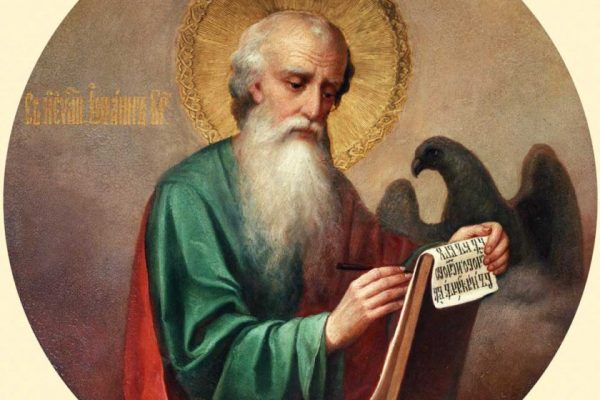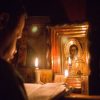A few years ago there was a group of so-called biblical scholars who formed a group called “the Jesus Seminar.” One of the core tenets of this group was the belief that there was a difference between the Jesus of history and the Jesus of faith. They would then take the texts of the gospels and they would highlight certain passages as being likely, unlikely, improbably etc. What did they use as the basis of their studies? Not much. It was basically a matter of their opinions which were grounded in the secular and materialist worldview. If you would like to read a truly devastating critique of their work please read “The Real Jesus” by noted scholar Luke Timothy Johnson.
Now the problem with the approach of these scholars is that it doesn’t allow for the supernatural. It doesn’t allow for the possibility that the most unlikely explanation (in earthly terms) is still the very best explanation for the events and the life of Jesus of Nazareth. But there is another more serious issue: The Christ who is preached by the Church is in fact, the true and only Christ, the historical Christ. If the Christ that we preach is different from some other “actual” or “historical” Christ than we have a problem. How would we know that the Christ we claim to follow is in fact the true and genuine one?
Moreover this becomes even less likely when we remember that the main historical documents about Jesus were those written by His very own disciples and apostles. One of those disciples is commemorated today, St. John the theologian. He was a young disciple who not only followed John the baptist, but then followed Christ with his brother James. He travelled with the Lord and witnessed His life and miracles for three straight years. He tells that the Lord Jesus performed so many miracles that all of the books could not possibly contain them! This same disciple was at the foot of the cross and witnessed the Lord’s final hours in agony and pain. Later, he was among the first to run to the place where Jesus had been laid and to witness the empty tomb. He spoke with the resurrected Lord and he took the Mother of God, Mary as his own adopted mother.
And He, the apostle John tells us that what he has written, and what he and his fellow disciples have preached, and what his very own brother has died for is “that which they have heard, which they have seen with their own eyes, which they have looked upon and touched with their hands.” We do not make a distinction between the Christ of the gospels and the true, historical Christ. They are one and the same. This is not a matter of opinion. It is the teaching. If you want to know joy and life and peace you have to believe rightly in the one who bestows these gifts by His grace. More than this, we are called to follow the teachings and to be molded into His image and to live a life that is well-pleasing to this one who is the way, the truth and the life.
St. John writing in today’s epistle reminds us that he is writing this “so that you may have fellowship with us; and our fellowship is with the Father and with His Son Jesus Christ.” So our fellowship with St. John, and the apostles and the whole Church depends upon our belief in the Lord. If we believe rightly and live rightly, then we are in fellowship and communion with God and His Church as well as His saints. St. John goes even further saying that he is writing this “that our joy may be complete.” He is speaking of the joy of the apostles. What makes their joy complete is the fulfillment of the preaching to which they have dedicated their lives. Their joy is complete in the generations of men, and women, boys and girls who would come to reject their former lives and choose to live in, through, and for Christ. The generations who would reject the darkness of sin and spiritual death and choose light and life. When we struggle to live genuinely and to walk in the light of Christ, then St. John assures and promises us that “the blood of Jesus Christ…cleanses us from all sin.”
I pray that these living words of the Apostle John will give us hope and encouragement as we strive to know the Lord and to serve Him.
I want to leave you with a quote from another John, St. John of Kronstradt who writes, “When your faith in the Lord, either during your life and prosperity, or in the time of sickness and at the moment of quitting this life, grows weak, grows dim from worldly vanity or through illness, and from the terrors and darkness of death, then look with the mental eyes of your heart upon the companies of our forefathers, the patriarchs, prophets, and righteous ones:
St. Simeon, who took the Lord up in his arms, Job, Anna the Prophetess, and others; the Apostles, prelates, venerable Fathers, martyrs, the disinterested, the righteous, and all the saints.
See how, both during their earthly life and at the time of their departure from this life, they unceasingly looked to God and died in the hope of the resurrection and of the life eternal, and strive to imitate them.” AMEN.

















